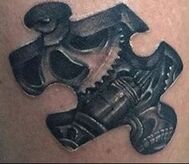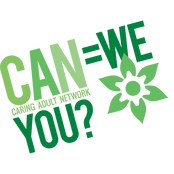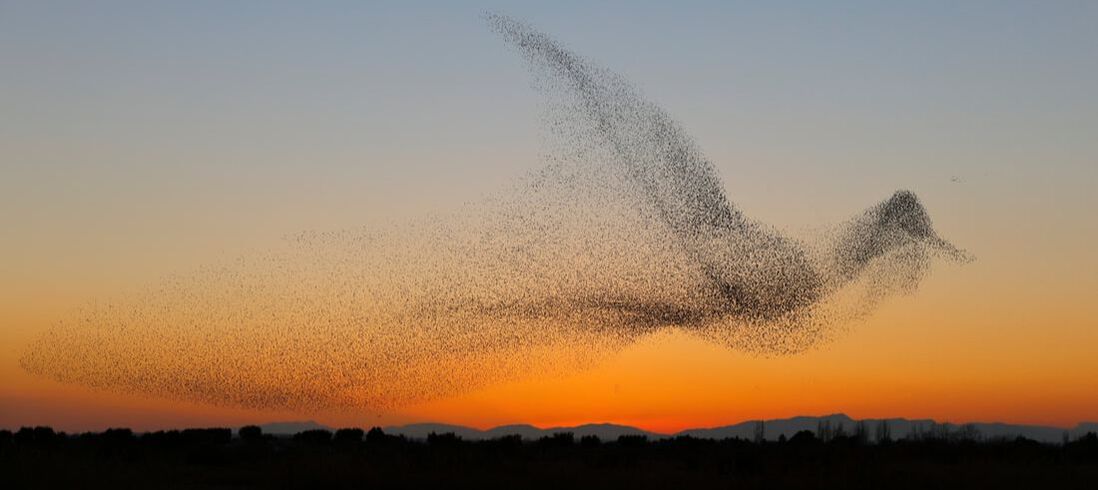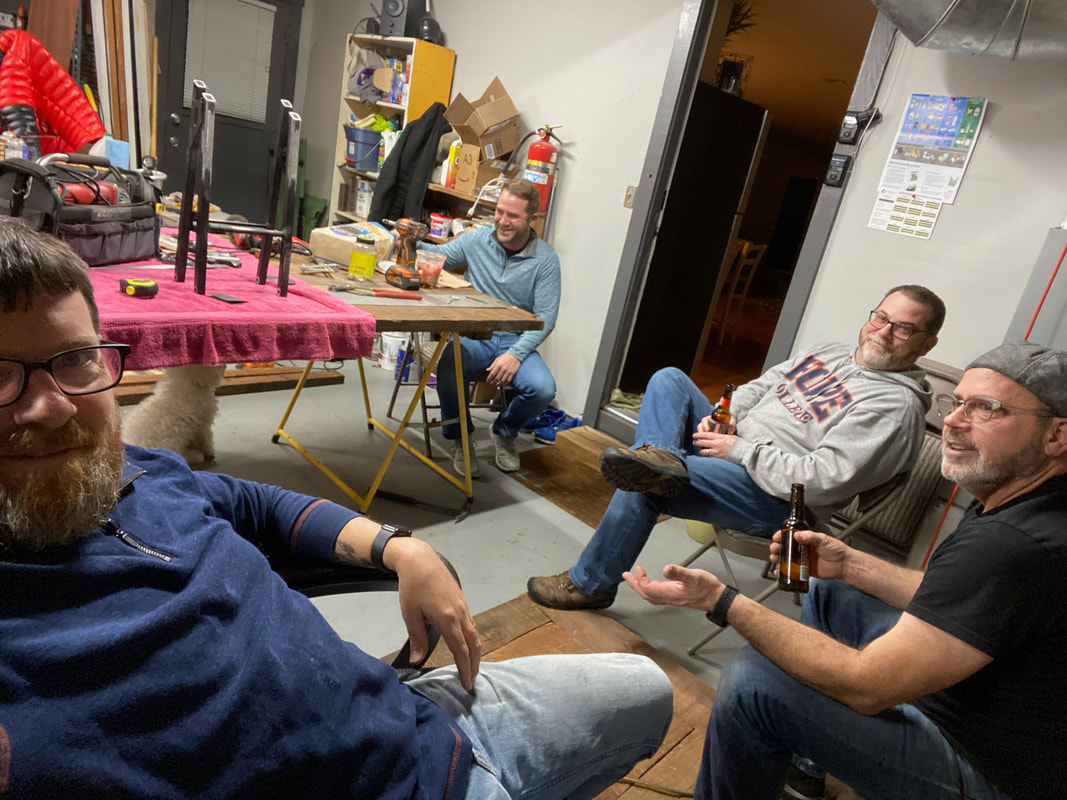 I’m not going to start this book off listing all the problems that prove the world is falling apart. You can make your own list. But let’s just agree that there’s a list. And there’s plenty on it. If we got together with our notepads, we could get ourselves good and depressed pretty darn quick. And it would feel like the magnitude of the combined problems are overwhelming. For any one person or even a well designed group of smart, rich, and powerful people, they are overwhelming. I propose that any traditional approach to solving problems will just result in more and increasingly complicated problems. History proves it. If we focus our energy on problems, they get bigger. This book is about how regular, individual people, without an external force like a boss, mayor, pastor, or president directing them, can collectively (re)generate a healthy group, community, culture, ecosystem, and planet. I am absolutely positive it can be done simply and without endlessly analyzing all the problems and figuring out how to solve them one by one. And I’m not proposing a new idea. There is no new technology needed. No complicated budgets or spending required. No local, state, or federal policies need to be in place before we can start. No restructuring of organizations or institutions. These things may come as a result but they will never be the cause.
0 Comments
 I know that most, if not all of us have been the recipient of some sort of relational trauma, I want to acknowledge that it’s painful. Really, really painful. And it can be long lasting or permanently impacting. I’ve never been abused in the classic sense of being hit or physically wounded by someone who was supposed to care for me. I suppose if you count that little best friend brawl in high school, but that left no lasting wound. But I have loved as deeply as I’m capable of loving and felt betrayed and alone. I’ve felt maligned and rejected when I expected to be understood and intimately accepted. I can still recall the pain of that and how it tore at my guts, my mind, and my soul in the most persistent, unavoidable, and hope crushing way I couldn’t have previously imagined. Perhaps one of the greatest pains we are capable of experiencing is the kind that comes from other humans. I’ve been giving this idea a lot of thought. You know, watching youtube videos, reading books, and piecing together different chunks of content from the last 53 years. Eventually, I got serious enough to get myself a degree in community psychology. If you’ve never heard of that - it’s a real thing, I promise. As a result of both serious scientific research and a formidable pile of anecdotal evidence, I have become suspicious that it makes sense to say there’s nothing wrong with me. I’m not broken, I’m just lonely, and lonely is a common malady that can be more of a blinking indicator light than the clatter and grind of broken parts. But hear me out. If I’m right, it means there’s nothing wrong with you either. Other than your own loneliness.
An invitation to participate in a Connect Coalition is also a challenge. This duality is not unique to a Connect Coalition. Every invitation to participate in something you were not already participating in includes a requirement to change if you say yes and the potential that you may miss out on something worthwhile if you say no. There’s no way to guarantee that the change or what you may miss out on is good. The only guarantee with this particular invitation is that you belong. That is the invitation and the challenge - to belong. Your identity is needed. It is of critical value. Your own needs are important enough to be met by your community. And our interdependence constructs a shared identity and a mission that requires all of us to accomplish something important together.
 There is always a pull to solve a problem. To figure it out is a lesser drive, to stop it is paramount. We want the bad, the painful, the heartbreaking to be done. We want our comfort back and to be left alone to enjoy it. It’s interesting that in our Western culture we would think or feel something like this, “leave me alone to enjoy my comfort.” Yes, we feel a sense of compassion for those who are affected by suicidal thoughts or substance abuse. We want the test scores of our educational institutions to be high so that we feel good about ourselves ensconced in our comfortable community. We want the blight of homelessness dealt with and hungry people to be fed. But we need to pay attention to what’s pushing us. It’s ironic that the concept of being left alone is associated with comfort. It’s not that it isn’t true though - the presence of others always interrupts our comfort. They bring their problems, agendas, annoying characteristics, and challenges to our status quo. They require us to consider our alikeness and our responsibility to each other. But they also bring wholeness.  The impetus for a Connect Coalition nearly always begins with concern by a group of citizens over an urgent problem. Some of the common concerns are youth suicide, substance abuse, bullying, poor academic performance, and homelessness. Usually, concerned citizens want to take action and do something to solve the problem or reduce its impact. They want to mobilize, bring attention to it, and attack it. Sometimes, they identify an immediate cause of the problem such as lack of mental health services, access to guns or access to substances, ineffective attention or discipline by educators or parents, and lack of access to services and low cost housing. The early and passionate recommendations about what needs to be done are focused on eliminating bad behavior or fixing a lack of something. This is deficit focused effort. History shows that it consumes significant energy with little or no systemic change. Sometimes, change wrought by this approach is actually for the worse. If a community rallies around what is wrong, the tendency is to see the “wrong” as someone’s fault or the fault of a group of people. The battle lines are drawn with other people or unmet standards on one side and the passionate warriors on the other.  A Connect Coalition is a prevention and health promotion strategy that increases community well being by creating a shared narrative in which every citizen experiences belonging. This approach to community health and community building identifies human disconnection as the cause of mental, emotional, behavioral, and physical illness. The outcomes of suicide, substance abuse, academic failure, employment instability, and homelessness are among many symptoms of this cultural illness. A Connect Coalition is a trauma-informed, community-led prevention and health promotion strategy based on systems and social network theory, belongingness, and positive psychology. At the time of this writing, we are in the midst of one of the most tumultuous years in recent history. Certainly of my slightly longer than a half-century life. We just stumbled into 2021 and not together. We were tripping and elbowing and hollering at each other all the way across the line and the stumble stagger still hasn’t stopped. It feels appropriate to recognize that saying the number of the new year comes out 2020 won. I wish that was funnier.
So, we’re going to build a connected community together. Or at least you’re curious enough to have picked up the book and flipped to the first chapter. Maybe you’re in your hippy friends bathroom and this book is your only option for reading material. Whatever. I’m going to take you seriously because this work is desperately needed and I am going to hope that even if you are stuck in your hippy friend’s bathroom that you might get sucked into this story and decide to be an instigator. So, from here on out, I’m going to talk to you like you’ve taken the plunge. You bought the IKEA cabinet and brought it home and now you’re reading the directions so you can put all the parts together right. You can imagine that cabinet all done, looking great in your kitchen and full of all the snacks and dishes that make life complete. Motivated. Passionate. Relentless. Sorry about switching metaphors but it felt like the bathroom one got sketchy when I used the word plunge.
|
Curtis MillerI write in a geeky, sciency, hopefully poetic way about belonging, storytelling, community building, deconstruction and construction, Archives
June 2024
Categories
All
|
Proudly powered by Weebly




 RSS Feed
RSS Feed